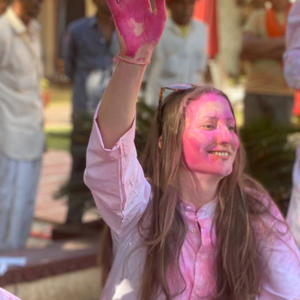Travelling in the Middle East
Our Operations Manager Fran is currently on a trip in Jordan and has written about what it’s like travelling in the Middle East at the moment, with thoughts from locals, fellow travellers, and guides.
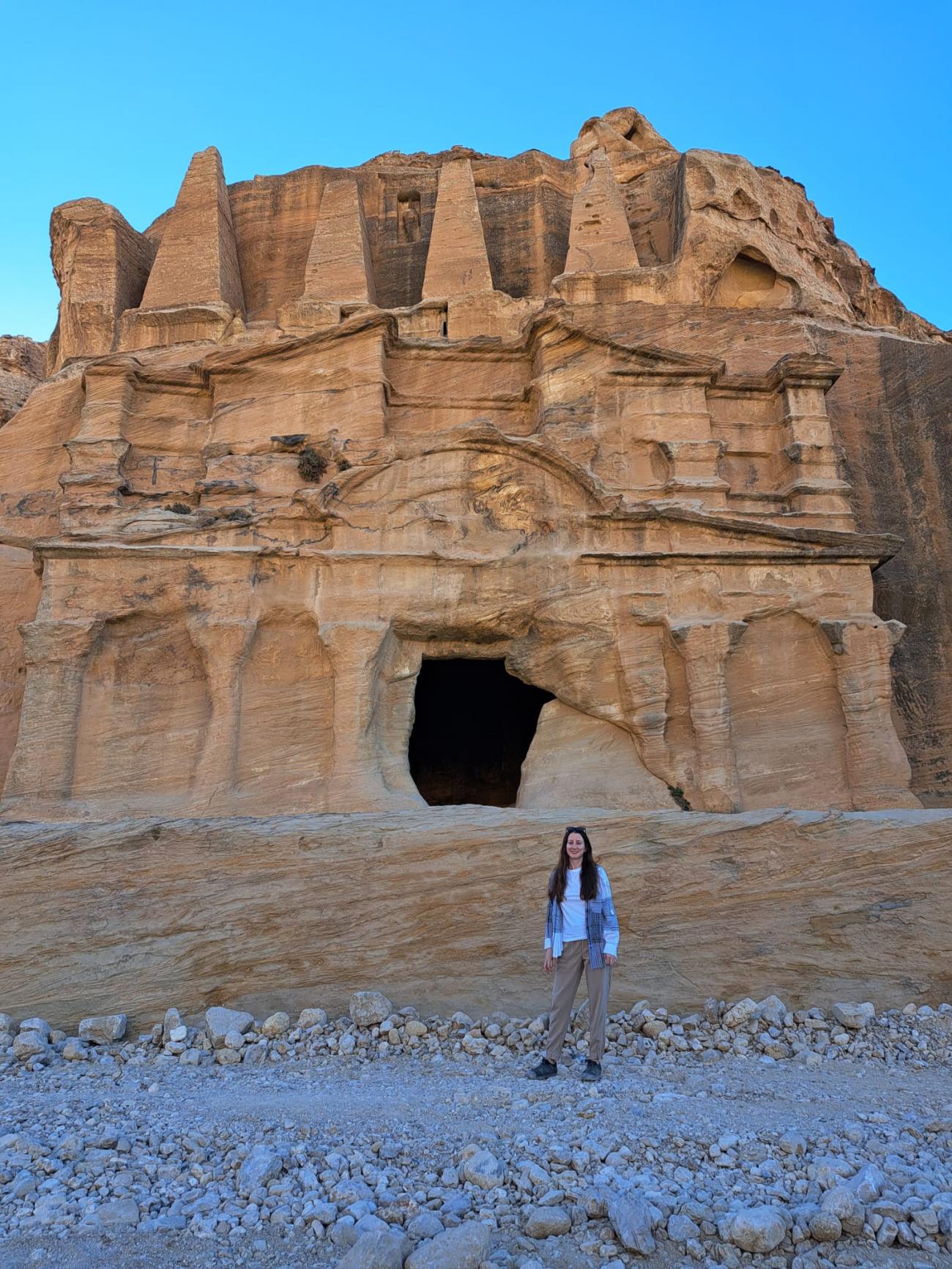
Jordan had been on my bucket list for a while, so I was delighted to get the opportunity to go this November. Post-COVID, tourism in Jordan had been a real success story but things have inevitably slowed down since the recent events in Israel and Palestine. At Wild Frontiers, we are understandably receiving calls from clients booked to travel to the region who have questions about what it is like travelling right now, so I thought I would write about my current experiences travelling in Jordan.
After several days here, it seems life is mostly continuing as normal. While we remained humbly aware of the tragedy across the border, away from the daily news and social media in the UK, the tensions somehow feel further away. Our guide Raja is of both Jordanian and Palestinian descent and with October 7th being just a month ago, it’s a topic that was on everyone’s mind so it naturally came up in conversation.
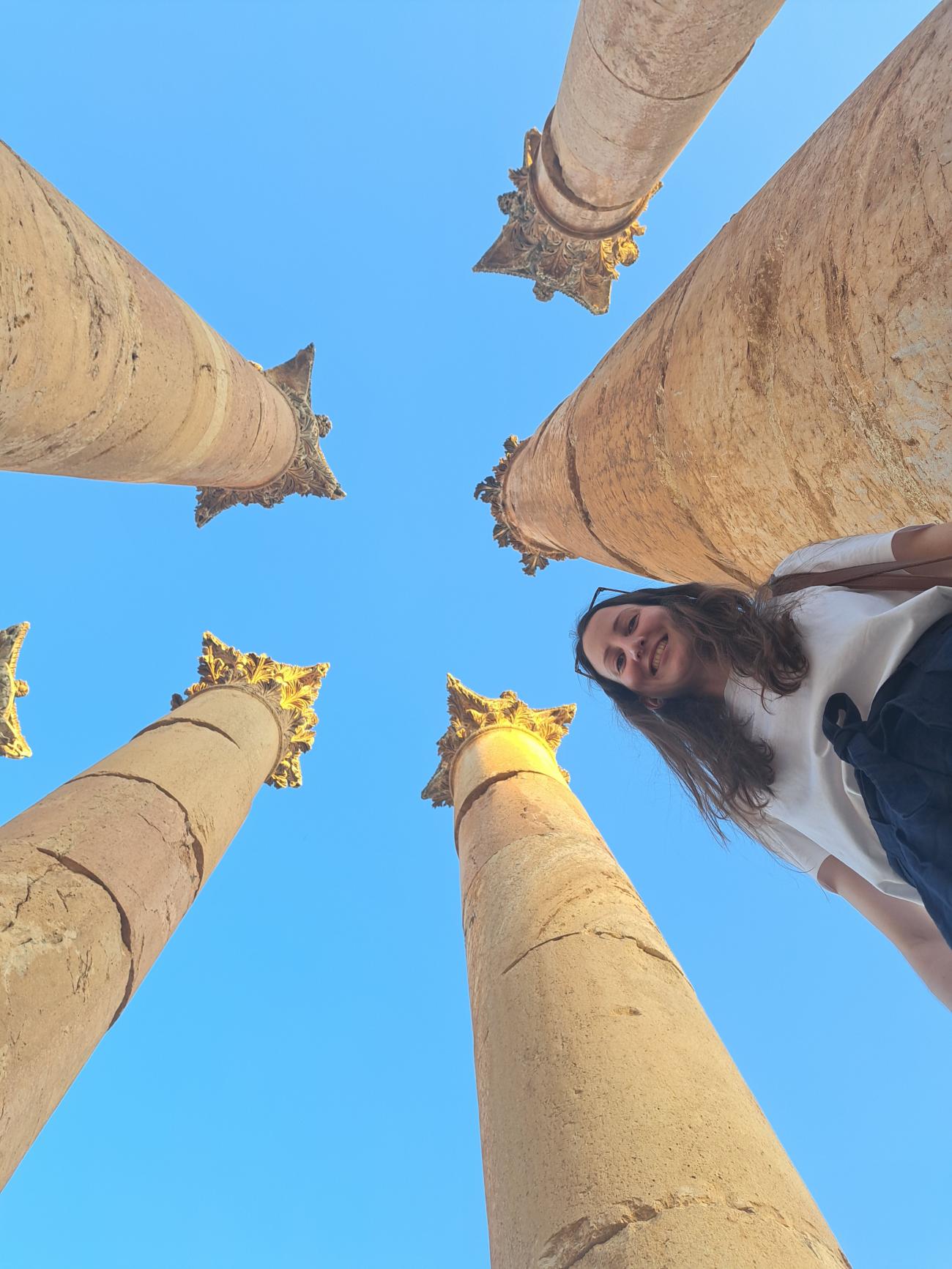
After a full morning of sightseeing in Amman visiting the mosque and citadel, we headed to Jerash just before sunset. The ruins of Jerash are considered to be some of the best examples of Roman ruins outside of Italy. Our first encounter with the subject of the conflict came up quite by chance whilst taking a break in the amphitheatre seats in the Jerash complex. We were greeted by three boys aged 10 to 11 years old, curious about where we had come from and wanted a picture. The boys didn’t speak English, but happily sat next to one of our group. Raja spoke to the boys in Arabic and then explained, ‘The boys are from the Gazan refugee camp near here.’
One of the group asked if they had come over since the most recent events on October 7th. Raja goes on to explain, ‘No, no. The Jerash camp is from 1967 after the Six-Day War. This is when Israel took over the West Bank. The boys grew up here in Jordan and live in the area with other Gazans.’
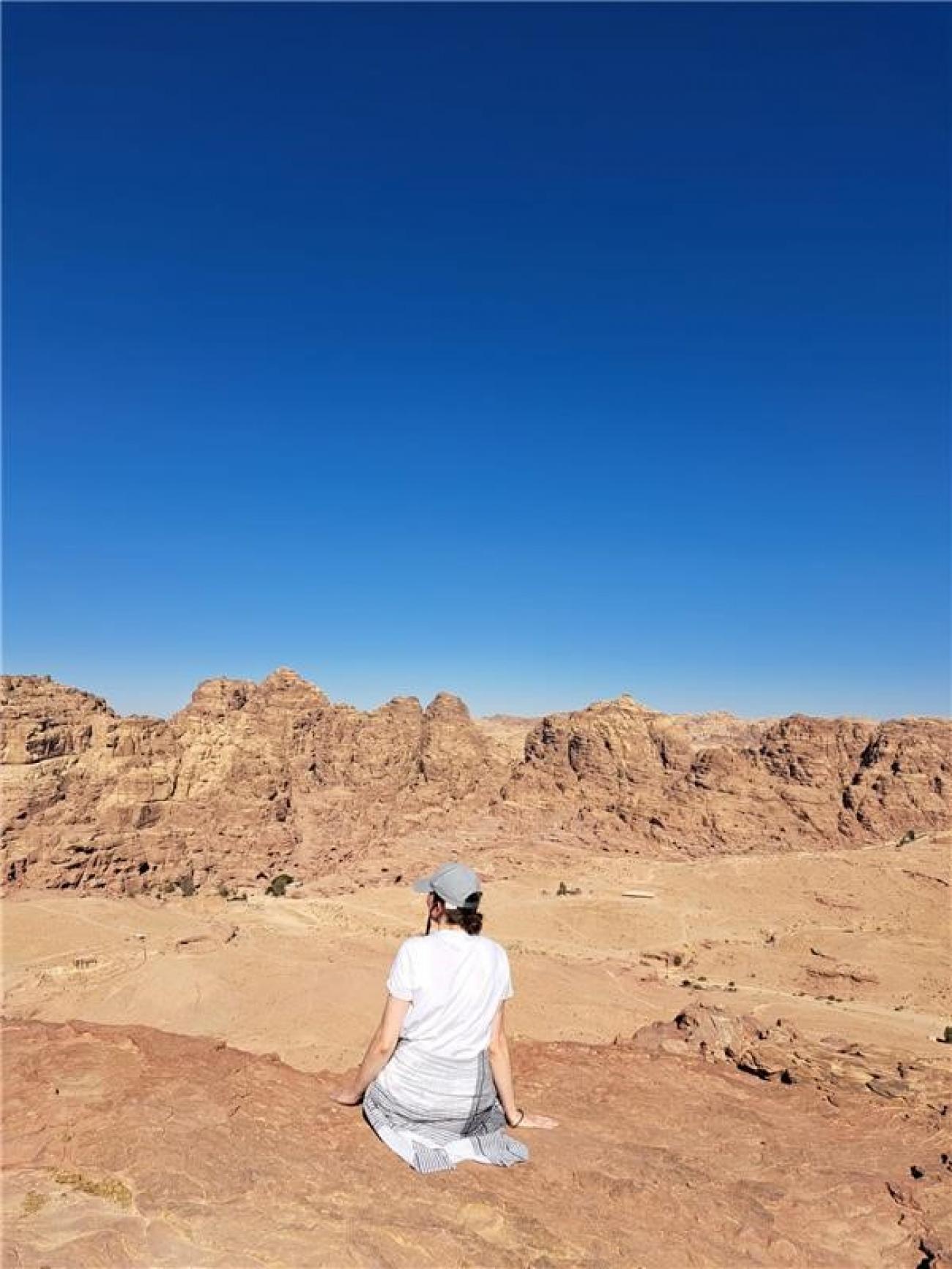
I asked Raja what he would tell anyone worried about visiting Jordan at the moment, ‘Visitors should not be concerned. Jordan is very safe, we welcome everyone. We have good relations with all our neighbours, all the countries around.’ Later, I enquired further about the current issues in Israel and whether he envisaged anything spilling over into Jordan. ‘No, no. Jordan has a treaty with Israel since 1994. This will not be a problem. Tourists don’t need to worry about this.’ Raja is referring to the Israel-Jordan peace treaty which has been in effect for 29 years. The treaty settled disputes regarding land and water rights, cooperation in tourism and trade, and ensured neither country could be used as a staging ground for military strikes by a third country.
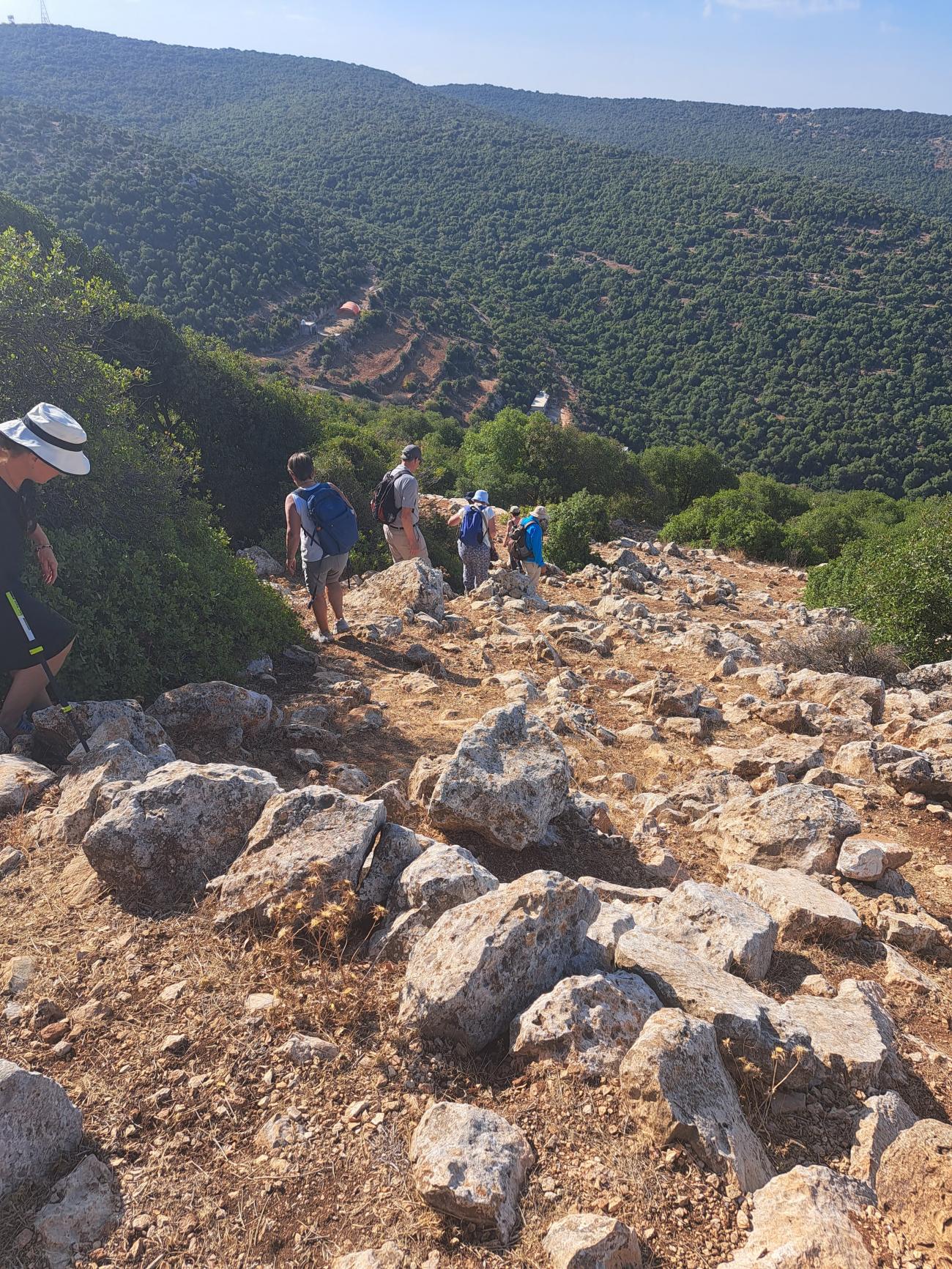
He goes on to tell me, ‘Jordan is very safe and everyone is welcome. We like tourists here and we look after them.’ This has been obvious during my stay. The local people are unwaveringly hospitable and friendly.
During our stay with Eisa and his wife Eman, we take a hike in the Ajloun Bio Reserve. A surprisingly green area, we hiked up through the various oak and pistachio trees to the highest point. We reached the peak of our hike, overlooking the lush mountains and hills. Our guide Eisa pointed over to the second mountain ridge to the West of us and informed us that we were looking at the Palestine West Bank or ‘Palestina’ as he calls it. Given how calm and relaxed our time in Jordan has been, it is almost easy to forget that Ajloun is less than 100km from the West Bank.
One of our group asked Eisa about the current situation in Israel and being so close to the Ajloun area, it is clear that they do not believe the situation will impact their area in Ajloun or Jordan. One of the group asked whether there had been any issues in the local area. Eisa reassured us that ‘everything is very safe. No need to worry.’
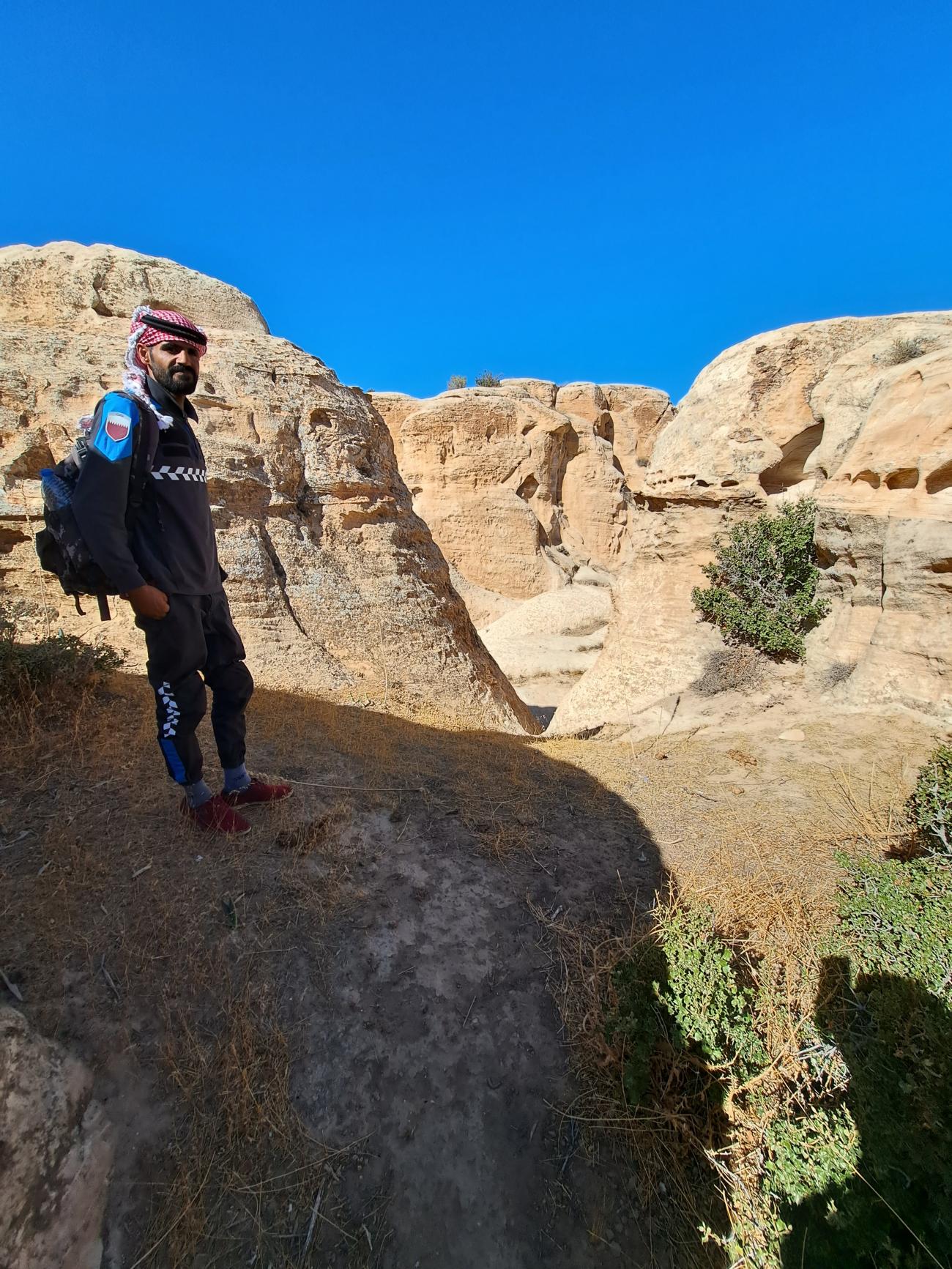
The homestay he runs with his wife is still busy with tourists stopping by for lunch during their hikes and there seems to be no indication of this changing anytime soon. Moving on, we travelled to As-Salt to enjoy the Souq and some delicious homemade cooking by Fatima, who very proudly showed us her pictures from cooking for the King and Queen of Sweden and Queen Rania of Jordan. Next, we headed to Dana Nature for more hiking with Omar, a local Bedouin at the reserve.

After enjoying these off-the-beaten-track places, it was a bit of a shock to see tourists again in Petra. It had almost felt like we had the place to ourselves. Petra will leave anyone in awe even with the tourists visiting. Petra seemed as busy as ever despite the Middle Eastern conflict. I asked one of the group about whether they had reservations before travelling given the current climate. One said, ‘I had my concerns but I just visited Oman before this tour so felt reassured by that.’
She continued, ‘I don’t feel unsafe in Jordan at all. In fact, from what I have seen so far, I already know that I would like to come back. Before coming, I had perceived the Middle East as perhaps a challenging place to travel, the landscape seemed hostile. Coming here has changed my perception and the people are genuinely warm.’
